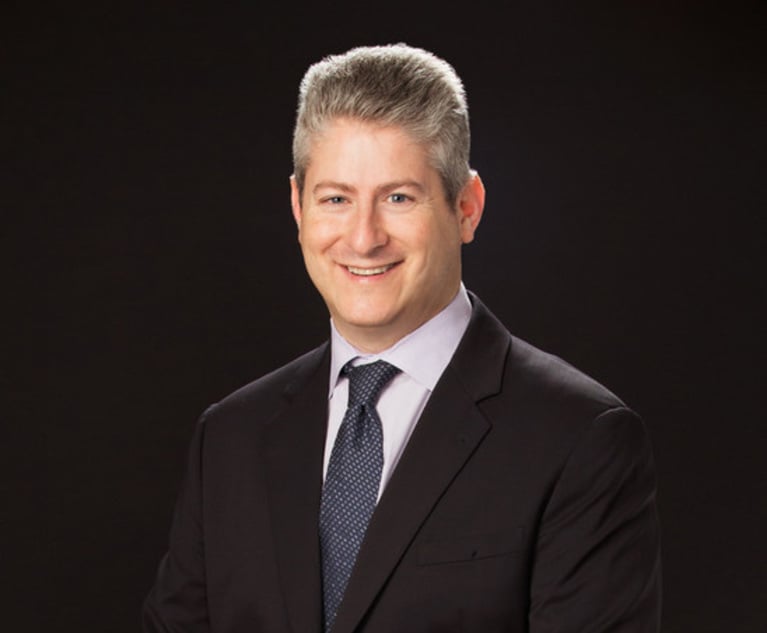Court of Appeals Examines Conditions for Funding of Charter Schools Pre-K
The parties differ on an interpretation of state education law that an attorney for Success Academy Charter Schools claimed in arguments grants them exclusive authority over their own pre-K programs.
October 10, 2018 at 06:15 PM
5 minute read
 Photo: Success Academy Charter Schools / Facebook
Photo: Success Academy Charter Schools / Facebook
Attorneys for New York City and the State Education Department argued before the Court of Appeals on Wednesday that no law exists to prevent the city from withholding public funds for pre-kindergarten from charter schools that do not comply with the city's standards for those programs.
The sides differed on the proper interpretation of state education law that an attorney for Success Academy Charter Schools claimed in arguments grants them exclusive authority over their own pre-K programs.
The appeal is on a decision from the Appellate Division, Third Department, which sided with Success Academy in the lawsuit last year.
Assistant Corporation Counsel Ingrid Gustafson argued for New York City and Assistant Solicitor General Zainab Chaudhry argued for State Education Commissioner MaryEllen Elia, who upheld the city's requirements on the funding when the charters challenged them in 2015.
Chaudhry argued that charters should not have exclusive authority over the programming of their pre-K programs because the money, ultimately, comes from the state at the request of the New York City School District.
Associate Judge Leslie Stein pushed back on that argument, which she suggested partly contradicted the point of a charter school. Those schools, which are considered public schools, were created to be overseen by the entity that authorizes them rather than the school district. That gives them autonomy from certain regulations imposed by the government while still obtaining state funds.
“The entire statutory scheme about charter schools is that they get to get this funding and they're overseen by the charter entity,” Stein said. “Why would there be a different policy here? Why is there any reason to think the Legislature didn't intend that very same thing?”
Chaudhry said this situation is different because charter schools have few options if their schools are not meeting the requirements for universal pre-K as established by state law, which charters must still comply with for state funding. Beyond revoking a school's charter, few options for a remedy exist, Chaudhry argued.
“The reason charter entity enforcement and oversight is not enough to protect the state's interest … is primarily because of the very limited enforcement options that a charter entity would have if one of its schools is not meeting pre-K quality and other requirements,” Chaudhry said. “It doesn't hold any of the purse strings here, it's not a party to any pre-K contract.”
That was the point of a set of standards imposed by the city on charters as a condition to funding for universal pre-K in 2015, Gustafson argued.
Those requirements are what spurred the lawsuit from Success Academy the following year. Success Academy is the largest network of charters in New York City. Parents of children who attend charters have also signed onto the lawsuit.
The city's education department told Success Academy in 2015 that it was “conditionally eligible” to receive part of the $300 million in state funding for universal pre-K obtained by the city that year. The funding was contingent on the timely completion of contacts sent to Success Academy by the city, which laid out various requirements for the funding beyond what state law required.
Success Academy began its pre-K program at three schools that fall without agreeing to the standards because it claimed state law allowed exclusive control by charter schools over their pre-K programs. New York City subsequently withheld funding for pre-K from Success Academy.
Steven Holley, a partner at Sullivan & Cromwell in Manhattan who appeared for Success Academy, made the same argument as the charter network before the Court of Appeals on Wednesday.
“I hear all these arguments about how … somewhere in this law there is this principle that all these other people get to regulate pre-K classes regulated by charter schools, but that's not what the law says,” Holley said. “The law says all such monitoring, programmatic review and operational requirements under this section … shall be the responsibility of the charter entity.”
Gustafson argued against Holley's interpretation of the statute, which she said was ambiguous at best. She claimed the Legislature did not intend the law to mean that other entities do not have oversight and regulatory authority over pre-K programs at charters.
“It doesn't say sole or exclusive. It's not framed as an exemption. The Legislature has the tools for framing an exemption. It very easily could have said … sole authority to the charter,” Gustafson said. “That language in plain terms does not preclude a role for other entities.”
A decision from the Court of Appeals in the case will likely come down in November.
READ MORE:
Court of Appeals to Eye Whether NYC Can Impose Conditions on Pre-K Funding for Charters
High Court to Settle Dueling State Statutes of Limitations in Mortgage Lawsuit
NY Court of Appeals Upholds Bar on Electoral Bids by State Agriculture Officials
NOT FOR REPRINT
© 2025 ALM Global, LLC, All Rights Reserved. Request academic re-use from www.copyright.com. All other uses, submit a request to [email protected]. For more information visit Asset & Logo Licensing.
You Might Like
View All

Cooley Promotes NY Office Leader to Global Litigation Department Chair

NY Judge Resigns After Avoiding Jury Duty by Telling Court He Couldn't Be Impartial

Charlie Javice Jury Will Not See Her Texts About Elizabeth Holmes
Trending Stories
- 1Mastering Litigation in New York’s Commercial Division Part V, Leave It to the Experts: Expert Discovery in the New York Commercial Division
- 2GOP-Led SEC Tightens Control Over Enforcement Investigations, Lawyers Say
- 3Transgender Care Fight Targets More Adults as Georgia, Other States Weigh Laws
- 4Roundup Special Master's Report Recommends Lead Counsel Get $0 in Common Benefit Fees
- 5Georgia Justices Urged to Revive Malpractice Suit Against Retired Barnes & Thornburg Atty
Who Got The Work
J. Brugh Lower of Gibbons has entered an appearance for industrial equipment supplier Devco Corporation in a pending trademark infringement lawsuit. The suit, accusing the defendant of selling knock-off Graco products, was filed Dec. 18 in New Jersey District Court by Rivkin Radler on behalf of Graco Inc. and Graco Minnesota. The case, assigned to U.S. District Judge Zahid N. Quraishi, is 3:24-cv-11294, Graco Inc. et al v. Devco Corporation.
Who Got The Work
Rebecca Maller-Stein and Kent A. Yalowitz of Arnold & Porter Kaye Scholer have entered their appearances for Hanaco Venture Capital and its executives, Lior Prosor and David Frankel, in a pending securities lawsuit. The action, filed on Dec. 24 in New York Southern District Court by Zell, Aron & Co. on behalf of Goldeneye Advisors, accuses the defendants of negligently and fraudulently managing the plaintiff's $1 million investment. The case, assigned to U.S. District Judge Vernon S. Broderick, is 1:24-cv-09918, Goldeneye Advisors, LLC v. Hanaco Venture Capital, Ltd. et al.
Who Got The Work
Attorneys from A&O Shearman has stepped in as defense counsel for Toronto-Dominion Bank and other defendants in a pending securities class action. The suit, filed Dec. 11 in New York Southern District Court by Bleichmar Fonti & Auld, accuses the defendants of concealing the bank's 'pervasive' deficiencies in regards to its compliance with the Bank Secrecy Act and the quality of its anti-money laundering controls. The case, assigned to U.S. District Judge Arun Subramanian, is 1:24-cv-09445, Gonzalez v. The Toronto-Dominion Bank et al.
Who Got The Work
Crown Castle International, a Pennsylvania company providing shared communications infrastructure, has turned to Luke D. Wolf of Gordon Rees Scully Mansukhani to fend off a pending breach-of-contract lawsuit. The court action, filed Nov. 25 in Michigan Eastern District Court by Hooper Hathaway PC on behalf of The Town Residences LLC, accuses Crown Castle of failing to transfer approximately $30,000 in utility payments from T-Mobile in breach of a roof-top lease and assignment agreement. The case, assigned to U.S. District Judge Susan K. Declercq, is 2:24-cv-13131, The Town Residences LLC v. T-Mobile US, Inc. et al.
Who Got The Work
Wilfred P. Coronato and Daniel M. Schwartz of McCarter & English have stepped in as defense counsel to Electrolux Home Products Inc. in a pending product liability lawsuit. The court action, filed Nov. 26 in New York Eastern District Court by Poulos Lopiccolo PC and Nagel Rice LLP on behalf of David Stern, alleges that the defendant's refrigerators’ drawers and shelving repeatedly break and fall apart within months after purchase. The case, assigned to U.S. District Judge Joan M. Azrack, is 2:24-cv-08204, Stern v. Electrolux Home Products, Inc.
Featured Firms
Law Offices of Gary Martin Hays & Associates, P.C.
(470) 294-1674
Law Offices of Mark E. Salomone
(857) 444-6468
Smith & Hassler
(713) 739-1250






